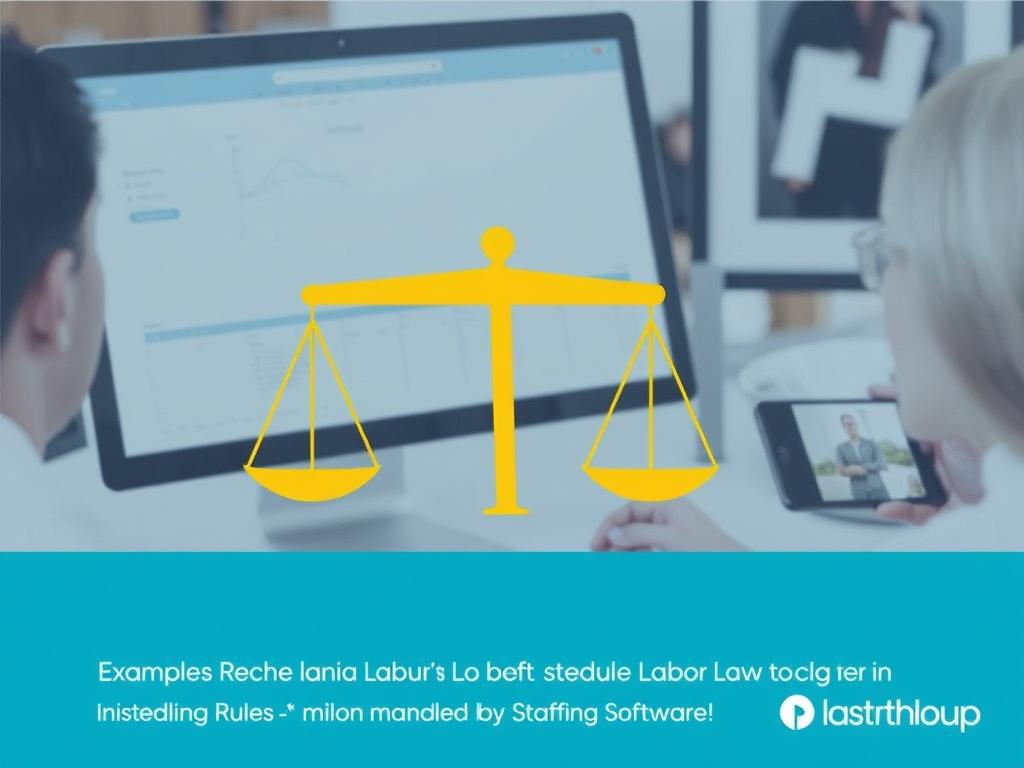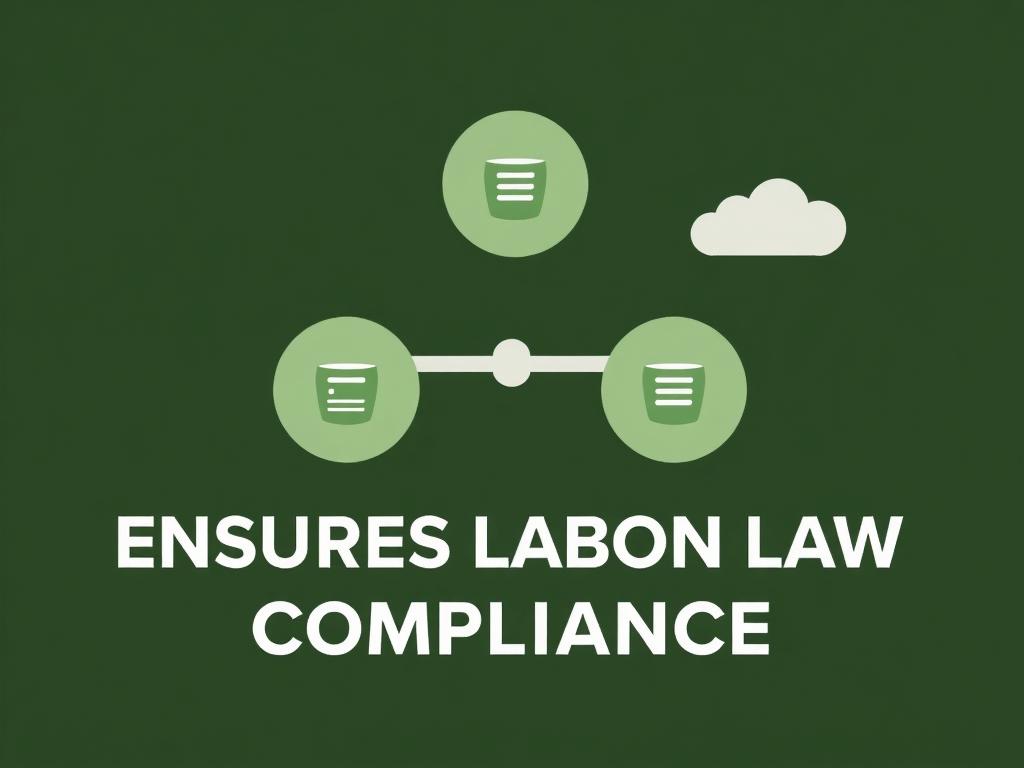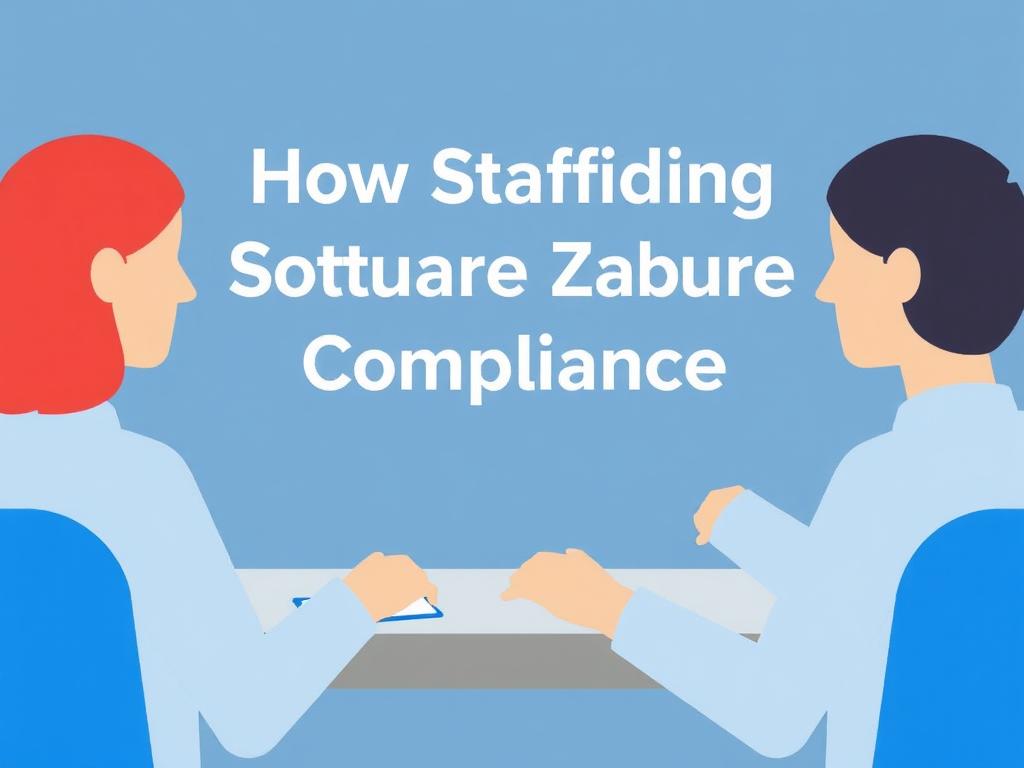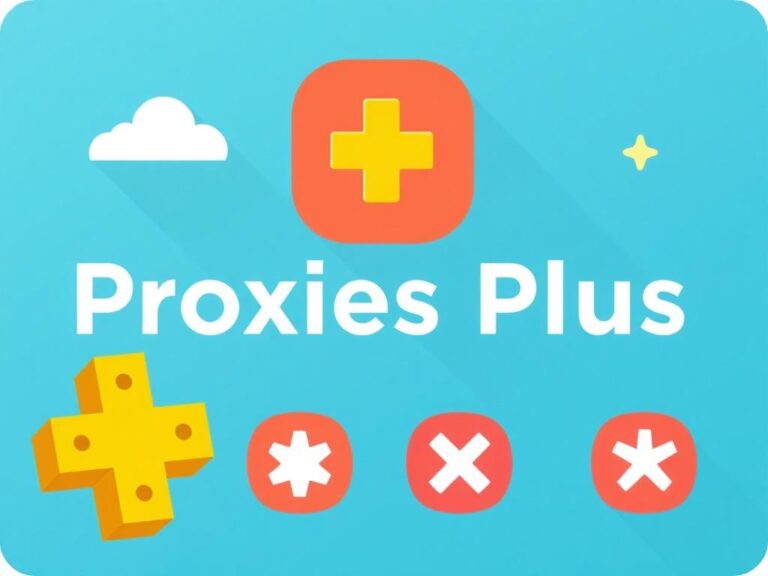How Staffing Software Ensures Labor Law Compliance
In today’s fast-paced business environment, staying compliant with labor laws can feel like walking a tightrope without a safety net. Mistakes in managing work hours, wages, and employee records can lead to costly penalties and even damage your company’s reputation. Luckily, staffing software has emerged as a powerful tool to help businesses navigate the complex landscape of labor law compliance. By automating time-consuming tasks and providing real-time data insights, staffing software ensures your workforce management stays on the right side of the law, while also boosting productivity and reducing administrative headaches.
Understanding the Complexities of Labor Law Compliance

Labor laws are a broad set of rules designed to protect workers’ rights and establish fair workplace practices. They cover everything from minimum wage requirements and overtime pay to restrictions on working hours and recordkeeping obligations. For employers, especially those managing a large or seasonal workforce, keeping track of all these rules can be overwhelming. Even minor errors can result in fines or legal challenges. Staffing software acts as a guide through this complexity, helping businesses interpret and implement labor law standards accurately and efficiently.
The Role of Staffing Software in Compliance
Staffing software isn’t just about scheduling employees; it’s a comprehensive labor management system that incorporates compliance features directly into daily operations. One of the key benefits is the automation of critical functions like:
- Tracking employee hours and attendance
- Calculating overtime and break times according to local laws
- Maintaining detailed employment records for audits and reporting
By automating these processes, staffing software minimizes human errors that often lead to non-compliance. It ensures that all labor-related data is collected accurately and consistently, allowing managers to focus on strategic decisions rather than manual recordkeeping.
How Staffing Software Manages Timekeeping and Scheduling
Timekeeping is one of the most important aspects of labor law compliance. Incorrectly tracking hours worked can lead to underpayment or overwork, both of which violate labor regulations. Staffing software makes accurate timekeeping seamless by integrating digital clock-ins, biometric systems, or mobile apps that allow employees to log their hours in real time. This system reduces the risk of “buddy punching” or fraudulent time entries.
On the scheduling front, staffing software helps employers design work schedules that comply with laws governing maximum work hours and mandatory rest periods. Some software also includes features that alert managers about potential violations before they happen, such as scheduling an employee for excessive overtime or ignoring required breaks.
Example: Scheduling Rules Handled by Staffing Software

| Labor Law Requirement | Staffing Software Feature | Benefit to Employer |
|---|---|---|
| Maximum 40 hours work per week | Shift alerts and overtime tracking | Avoids unauthorized overtime costs and legal penalties |
| Mandatory 30-minute break after 5 hours | Automatic break reminders and enforcement | Ensures employee well-being and compliance |
| Rest period of 12 hours between shifts | Scheduling conflict alerts | Prevents scheduling violations and worker fatigue |
Payroll and Wage Compliance Made Easy
Another critical area where staffing software shines is payroll management. Wage laws can vary widely by jurisdiction, including minimum wage differences, overtime premiums, and special pay rates for holidays or night shifts. Errors in payroll are among the most common triggers of labor law violations and employee dissatisfaction.
Modern staffing software integrates with payroll systems to ensure accurate wage calculations based on logged hours and compliance rules. It automatically applies the right pay rates, calculates overtime correctly, and generates comprehensive payroll reports for audits and tax purposes. This robust integration reduces manual errors, streamlines payroll processing, and increases transparency for both employers and employees.
Benefits of Compliance-Focused Payroll Features

- Automatic minimum wage validation prevents underpayments
- Overtime rules tailored to state and federal requirements
- Easy tracking of tipped employees and bonuses according to regulations
- Secure recordkeeping for required wage statements and tax forms
How Staffing Software Supports Recordkeeping and Reporting
Maintaining thorough records is a fundamental requirement for labor law compliance. Employers must retain documents such as time sheets, payroll records, employee contracts, and compliance reports for a set number of years. Failing to do so can complicate audits or legal disputes.
Staffing software provides centralized digital storage of these records, which can be accessed quickly and securely when needed. Many systems also generate compliance reports that summarize key metrics like hours worked, wages paid, and scheduled breaks. These reports are invaluable during audits or when analyzing trends to improve labor compliance policies.
Key Recordkeeping Features
| Record Type | Software Capability | Compliance Benefit |
|---|---|---|
| Employee Time Logs | Automatic recording and backup | Prevents disputes over hours worked |
| Payroll History | Integrated payment records with audit trail | Ensures wage transparency and tax compliance |
| Shift Schedules | Timestamped scheduling records with alerts | Demonstrates adherence to work-hour limits |
Real-Time Alerts and Notifications
One of the standout advantages of modern staffing software is its ability to provide real-time alerts and notifications related to labor law compliance. For example, if an employee approaches their overtime limit or misses a mandated rest break, the system can notify both the employee and the manager immediately. These proactive alerts act as guardrails, helping businesses avoid accidental violations before they occur.
Additionally, such notifications can remind managers about upcoming legal changes, employee certifications, or mandatory training deadlines, ensuring that compliance is a continuous and manageable responsibility rather than a last-minute scramble.
Typical Alerts in Staffing Software
- Overtime threshold warnings
- Mandatory break and rest period reminders
- Compliance training and certification expirations
- Document renewal alerts (work permits, licenses)
Customizing Compliance to Fit Your Business Needs
Every business operates uniquely and may be subject to different labor laws based on its location, industry, and workforce composition. Good staffing software allows for customization to accommodate these variables. Whether you operate in multiple states with differing regulations or employ a mix of part-time, full-time, and contract workers, staffing software can be tailored to fit your compliance requirements precisely.
This flexibility means you don’t have to worry about a one-size-fits-all approach. Instead, the software adapts to your specific business rules and local labor laws, providing peace of mind that you’re always in compliance, no matter how complex your staffing situation may be.
Advantages of Customizable Staffing Software
| Feature | Benefit |
|---|---|
| Multi-jurisdictional rule settings | Ensures compliance across locations with varying laws |
| Industry-specific labor rule integrations | Meets specialized regulatory needs (e.g., healthcare, manufacturing) |
| Employee classification management | Properly tracks compliance for full-time, part-time, and temps |
The ROI of Investing in Labor Law Compliance Software
While investing in staffing software is an upfront cost, the financial benefits and risk mitigation it offers far outweigh the expense. The cost of labor law non-compliance can be steep, including fines, legal fees, back wages, and damage to employee morale. Furthermore, improving labor compliance streamlines your workforce operations, reducing administrative time and errors.
Many companies find that with staffing software, they recoup their investment through improved efficiency and reduced legal risks. Additionally, compliance builds a culture of fairness and trust that can enhance employee retention and company reputation.
Summary of Staffing Software ROI Benefits
- Reduced risk of costly labor law penalties
- Lower administrative overhead due to automation
- Improved workforce accuracy and transparency
- Better employee satisfaction through fair and compliant practices
Conclusion
Staffing software has become an indispensable ally for businesses aiming to stay compliant with ever-changing labor laws. By automating timekeeping, scheduling, payroll, and recordkeeping, these tools reduce human errors and create a transparent, legally sound workforce management system. The real-time alerts and customizable features enable companies to adapt quickly to new regulations and workforce complexities. Investing in staffing software not only safeguards your company from costly penalties but also promotes a culture of fairness and efficiency, ultimately fostering a healthier and more productive workplace. For any business looking to confidently navigate labor law requirements, staffing software offers a smart, reliable, and cost-effective solution.






